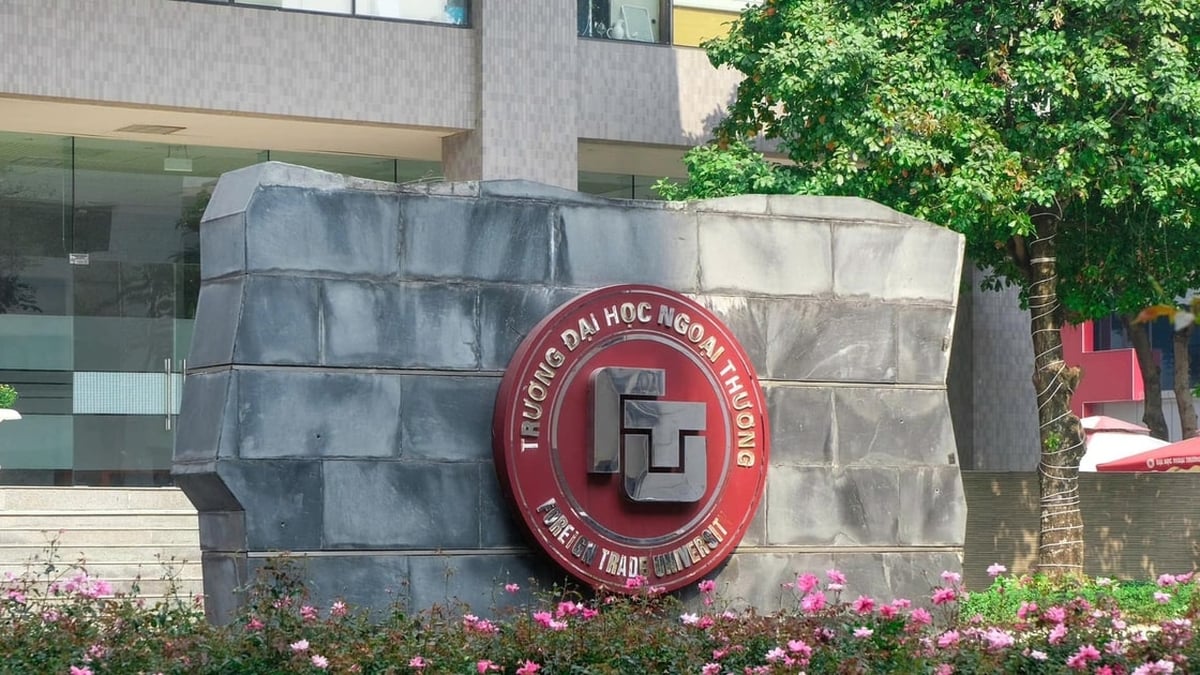Essential jobs are being "let go"
In mid-May 2025, after a severe stomachache, Ms. H in Ngoc Thuy ward (Long Bien district) checked the surveillance camera recording the family's kitchen area and was shocked to discover that the maid was boiling a pot of perilla leaf water but did not wash the vegetables, even used a kitchen rag to wipe up the spilled water and then...wrung it straight into the pot of water for the homeowner to drink.

The maid in the video is Ms. O (58 years old, from Nghe An), hired by Ms. H's family through a brokerage company from mid-April 2025 with a salary of 9 million VND/month. Previously, Ms. O was introduced by the company as "clean, good at cooking, hard-working". When working with Ngoc Thuy Ward Police, Ms. O admitted to the act but said it was because she was "in a hurry and unintentional".
Also in Hanoi , public opinion was shocked by the case of infant abuse by a maid. In the camera footage provided by the family, the maid repeatedly beat the 1-month-old baby boy, shook him violently, and threw him onto the bed. Ms. L (57 years old, from Tuyen Quang) - the maid was later prosecuted for child abuse.
Incidents involving domestic workers are not uncommon and show the reality that when trust is misplaced and there is a lack of legal binding, the consequences can be health, money, and even the lives of family members.

Articles 161, 162, 163, 164 and 165 of the 2019 Labor Code have very specific provisions on the obligations and rights of domestic workers and employers, but most of these provisions are not implemented.
Speaking to reporters of the Hanoi Moi Newspaper, Dr. Pham Ngoc Toan, Director of the Center for Information, Analysis, Strategic Forecasting and Public Services, Institute of State Organization and Labor Sciences , said that in developed countries, the domestic worker profession is formalized and managed by the state. Therefore, people working in this profession are signed contracts and must comply with the regulations and laws set forth by the state, especially labor laws. In Vietnam, domestic workers are currently classified as informal workers, without clear legal constraints.
Currently, most domestic workers are recruited through personal relationships or through unprofessional recruitment agencies. These agencies only act as a “bridge” and do not legally manage workers after the introduction.
“The relationship between the employer and the domestic worker is mainly verbal, personal, spontaneous and based on trust. There is no unit that manages and takes responsibility for this group of workers when disputes or incidents occur. Even the domestic workers are not protected if they are exploited, have their wages withheld, or are harassed…”, said Dr. Pham Ngoc Toan.
Not only that, according to Decision No. 806/QD-LDBXH dated July 14, 2021 on promulgating the National Occupational Skills Standards in 2020, domestic work has become one of 199 occupations with national occupational skills standards. However, Dr. Pham Ngoc Toan cited the reality that domestic workers are not properly trained, mainly work based on experience, habits, emotions, lack professionalism, and lack professional skills and awareness.
“If they are properly trained, they will know what is dangerous behavior, what is taboo in taking care of children, sick people, in food processing to ensure safety, prevent food poisoning for the homeowner… However, currently this training is almost non-existent,” Dr. Pham Ngoc Toan shared.
Formalize to protect both sides
In the past, security was also an informal, freelance job, similar to a maid job. However, when security companies were born, this model gradually became professionalized.
“The security guard does not sign a contract directly with each individual, but with the business and that business takes full legal responsibility. The worker signs a contract with the business, is trained in skills, and is subject to management and protection by law. The domestic worker profession also needs a similar roadmap,” said Dr. Pham Ngoc Toan.
To manage the domestic work profession, a licensed intermediary is required. This intermediary is the domestic work company, which will be responsible for selecting, training, verifying the background of the worker, then signing a three-party contract between the company - the domestic worker - the hiring family. Workers are given a code and pay insurance, which not only protects the homeowner but also helps the worker feel secure and have long-term security.
“If the domestic worker profession is formalized, requiring labor contracts to be signed in accordance with the law, workers can participate in social insurance, take maternity leave, receive sick leave, etc. And homeowners can also feel secure knowing clearly what the identity of the person living in their home is, how they were trained, and who they are managed by,” emphasized Dr. Pham Ngoc Toan.
Nowadays, domestic work is an indispensable part of modern urban life. They take on childcare, cooking, and cleaning - jobs that are closely related to the health, privacy, and sometimes even the lives of the host family.
It is time for the domestic work profession to be governed by law, not just by trust. A profession that is in great demand in society cannot be marginalized by the law, nor can honest workers be equated with heartless, unethical domestic workers.
Source: https://hanoimoi.vn/tu-vu-nguoi-giup-viec-len-cho-chu-nha-uong-nuoc-giat-gie-lau-can-quan-ly-nghe-giup-viec-bang-luat-703452.html


































































































Comment (0)